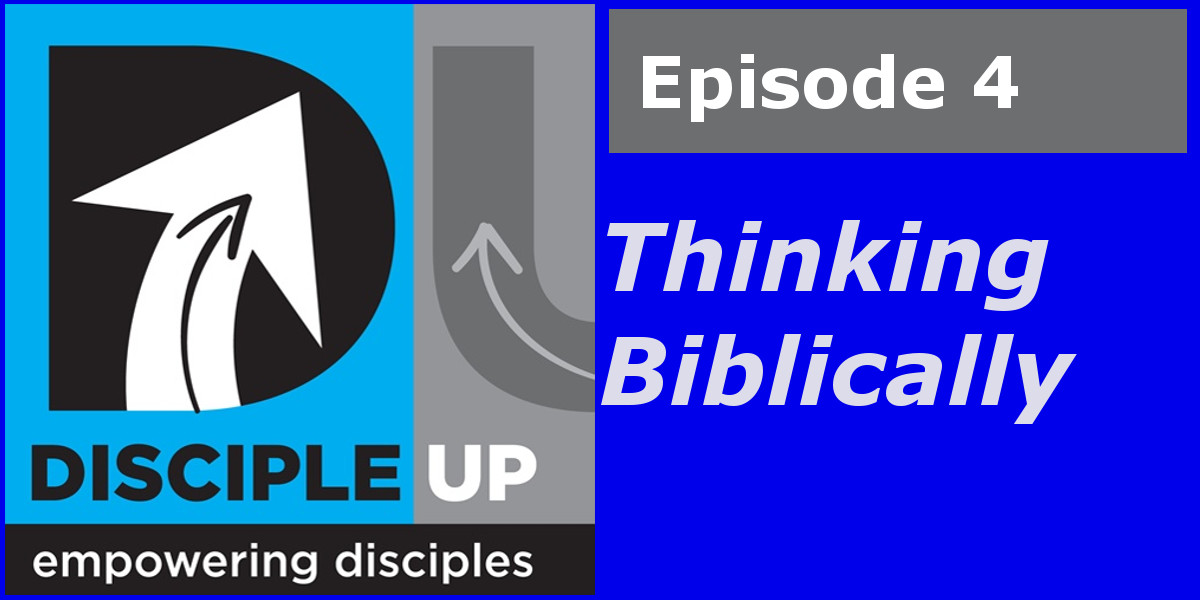
Thinking Biblically
God calls disciples to think Biblically not culturally and not to simply follow my feelings or to go by my instincts. No, God calls all disciples to think clearly, critically (I mean analytically not to be critical of others).
18 “Come now, let us reason together, says the LORD: though your sins are like scarlet, they shall be as white as snow; though they are red like crimson, they shall become like wool. Isaiah 1:18 (ESV)
We need to think like God thinks, to see the world as he does and then follow that truth.
People sometimes say, “The god I believe in …” Perhaps the god you believe in isn’t the real, true and living God. And the only way to know for sure what he thinks is to consult, understand and depend upon the Bible.
C.S.Lewis: “If you do not listen to theology, that will not mean that you have no ideas about God. It will mean that you have a lot of wrong ones!”
To really think Biblically I must to this: 21 but test everything; hold fast what is good. 1 Thessalonians 5:21 (ESV)
Test everything – especially things that make me feel good while sending me off in a slightly different direction in life. This kind of testing, comparing everything to Scripture – needs to become a deeply ingrained habit that the disciple does automatically!
1 Beloved, do not believe every spirit, but test the spirits to see whether they are from God, for many false prophets have gone out into the world. 1 John 4:1 (ESV)
Your Mind Matters by John Stott
An Example of Thinking Biblically
34 But when the Pharisees heard that he had silenced the Sadducees, they gathered together. 35 And one of them, a lawyer, asked him a question to test him. 36 “Teacher, which is the great commandment in the Law?” 37 And he said to him, “You shall love the Lord your God with all your heart and with all your soul and with all your mind. 38 This is the great and first commandment. 39 And a second is like it: You shall love your neighbor as yourself. 40 On these two commandments depend all the Law and the Prophets.” Matthew 22:34-40 (ESV)
1st Question: Who is my neighbor?
29 But he, desiring to justify himself, said to Jesus, “And who is my neighbor?” 30 Jesus replied, “A man was going down from Jerusalem to Jericho, and he fell among robbers, who stripped him and beat him and departed, leaving him half dead. 31 Now by chance a priest was going down that road, and when he saw him he passed by on the other side. 32 So likewise a Levite, when he came to the place and saw him, passed by on the other side. 33 But a Samaritan, as he journeyed, came to where he was, and when he saw him, he had compassion. 34 He went to him and bound up his wounds, pouring on oil and wine. Then he set him on his own animal and brought him to an inn and took care of him. 35 And the next day he took out two denarii and gave them to the innkeeper, saying, ‘Take care of him, and whatever more you spend, I will repay you when I come back.’ 36 Which of these three, do you think, proved to be a neighbor to the man who fell among the robbers?” 37 He said, “The one who showed him mercy.” And Jesus said to him, “You go, and do likewise.” Luke 10:29-37 (ESV)
2nd Question: What is the command here?
A: To love my neighbor. This isn’t two commands – it’s ONE. The command is to love my neighbor.
The second part of this is an explanation of HOW we are to love our neighbor. People have always known there are different kind of love. Love my dog, spouse, baseball, various unhealthy sweets etc.
“As yourself” explains that this command is for us to love our neighbor the way we normally LOVE OURSELVES. This selflove is assumed – NOT commanded. This type of self-love, or self-preservation as we’d probably call it, is noted throughout Scripture.
28 In the same way husbands should love their wives as their own bodies. He who loves his wife loves himself. 29For no one ever hated his own flesh, but nourishes and cherishes it, just as Christ does the church, Ephesians 5: 28-29 (ESV)
Conclusion: This command is NOT a command to have high self-esteem. To make it say that is to twist the plain meaning of the text to fit into our modern therapeutic, psychologized world view. A view which did not exist prior to the last century and NEVER existed or was taught in the Bible.
Closing
Getting Real Links

